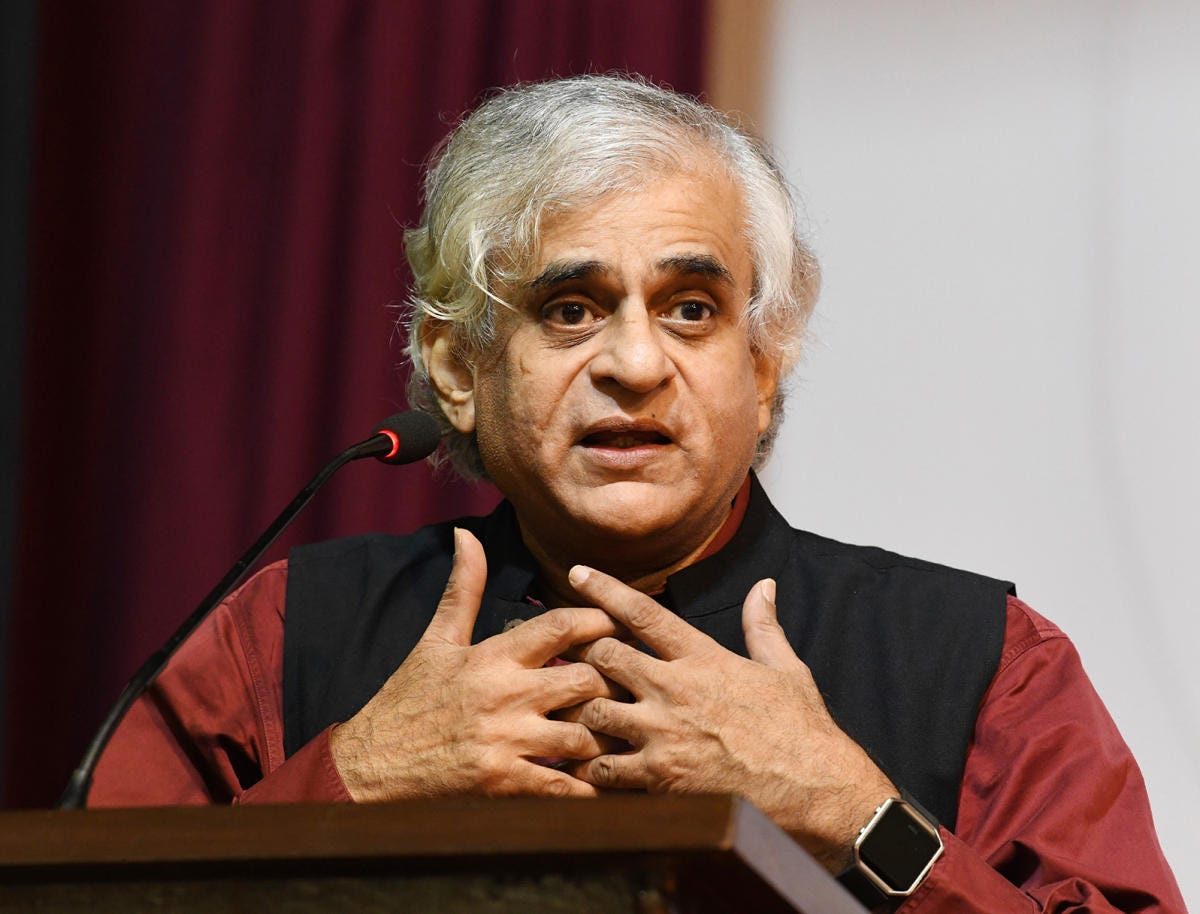'India is witnessing the fastest dismantling of its democracy. Emergency was nothing in comparison'
P. Sainath says "morons with zero knowledge" are reworking labour laws

On J-POD, the podcast on journalists and journalism, Magsaysay Award-winning journalist P. Sainath, the author of Everybody loves a good drought, speaks on India and the media after COVID, migrant workers, and the “morons” reworking labour laws.
‘An autopsy of development’
“COVID has presented us with a complete, total, thorough, unsparing autopsy of our development in the last 30 years. We could look away after #Demonetisation. Now the fire is at our door step.
“We are watching the fastest dismantling of parliamentary democracy in our history and the Emergency was nothing in comparison. There is no Parliament or e-Parliament or virtual Parliament.
“There are no functioning Assemblies. Chief ministers are at the mercy of the Centre, which is squeezing GST funds due to them and starts a privately registered PM Cares trust takes money away from the states.
“The extension of working hours in five states—three BJP ruled and two Congress ruled—-from 8 hours to 12 hours a day comes from morons with zero knowledge of history.
“In the United States, the capitalist groups accepted the 8-hour day because they did studies which showed that after 8 hours, productivity tapers off. So you will be paying more for less.”
“India is in the grip of an alliance between socio-religious fundamentalists and the economic-market fundamentalists. Their meeting ground, the bed they cohabit, is corporate media, mainstream media.
‘A brain scan of media thinking’
“If COVID gave us an autopsy of Indian society, it also gave us a brain scan of elite thinking, and a brain scan of media thinking.
“A prominent editor on his own online TV thing says “never waste a good crisis”. That this is the time to ram through labour reforms. What does it say about the Indian elite and their cruelty and absolute rapaciousness and ruthlessness toward the less privileged sections of society?
“What has changed, and changed politics and affects journalism in every way, is even if we did not suffer much, it mattered to us that others did. The word justice meant something to everybody, not just those denied it.
“A whole generation of young people has grown up believing that there is no other journalism but what you get in the supplements of The Times; that there is no economics other than neo-liberalism.
“The migrant crisis is having a great impact on the minds of journalists, especially young journalists.
‘The gorilla in the room’
“A five-year study showed that the average national newspaper dedicates 0.67% of its front page to news of rural origin where 69% of the population lives. If you take out the election year, the coverage is between 0.18 to 0.24%.
“The media has decided that 75% of the population don’t make news, except at election time.
“Not less than a 1,000 journalists have lost their jobs since March 25. At the very time the public need them the most, media houses whose profit lines would be the envy of the top 30 companies on the Sensex, are throwing out journalists.
“You are having this kind of money and your hearts are bleeding all over your columns on the poor people in distress, and you are throwing out people at 24 hours’ notice by making them resign so that you don’t look like gorillas in the public eye.
“The newspapers that have woken up to COVID are the ones which are shedding journalists like confetti.
“The biggest media owner in the country is also the richest Indian in the world.
“We are the only country in the world which has TV channels which cover the neighbouring country more than their own.
“When the solicitor-general took off the media, I was wondering which media was he talking about? 95% of the media are with him.”
Listen to the full J-POD with P. Sainath here:
Read an edited transcript of the podcast here: Indian Journalism Review
Show some love for The Net Paper, the world’s first social media newspaper.
Spread the word.



Any article or piece of message written by P Sainath are gut wrenching to the fact that they bring out the harsh, brutal reality of India. It's not an easy read as it makes us ponder to the value of human life and stirs our conscience.
P Sainath is Living legend.We are living in autocratic country now. Any and every government official feels he is more powerful than layman.